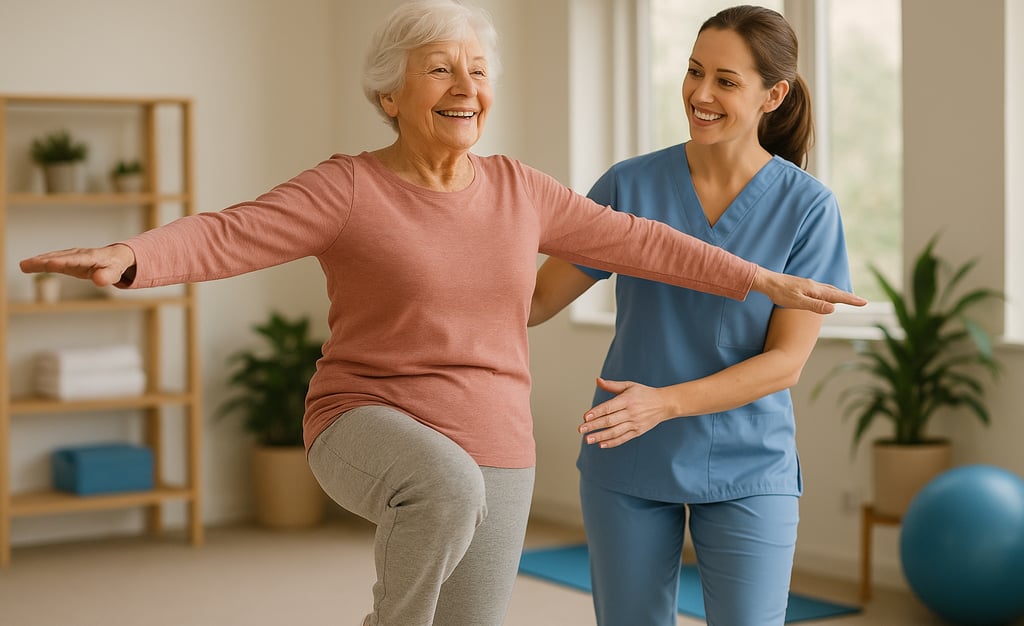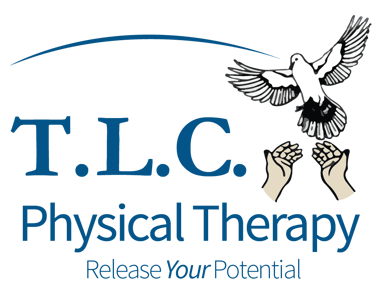Empowering Seniors: How Physical Therapy Boosts Strength, Balance, and Independence
Discover how physical therapy can empower seniors to maintain strength, improve balance, and enhance overall quality of life. Learn about tailored exercises and therapy programs designed to address common age-related health conditions, promoting independence and vitality in later years.
Jason Lamendola PT
8/2/20252 min read


Introduction
The term "aging gracefully" often suggests effortlessly embracing the natural physical and emotional changes that come with age. However, it can unintentionally highlight pressures to maintain youthful vitality and strength. Instead, a more practical approach is actively investing in maintaining strength, balance, and overall health to enjoy a high quality of life in later years.
Physical Therapy (PT) provides seniors with targeted strategies to improve their physical health, reduce pain, and extend independence, reducing the likelihood of chronic health issues or diminished quality of life.
What is Physical Therapy for Seniors?
Physical therapy for aging adults focuses on enhancing mobility, strength, balance, and endurance. Instead of relying solely on medication, seniors increasingly turn to PT for effective symptom management and long-term health improvements.
Types of Physical Therapy for Seniors
Physical therapists tailor exercises and therapy programs based on specific health conditions and individual needs:
1. Neurological Physical Therapy
Targets conditions like Parkinson’s, Alzheimer’s, ALS, or brain injuries.
Improves coordination, balance, and motor skills.
2. Cardiopulmonary Physical Therapy
Helps manage heart and lung conditions such as hypertension, coronary artery disease, heart failure, and pulmonary diseases.
Enhances endurance, strength, and daily function.
3. Orthopedic Physical Therapy
Addresses musculoskeletal conditions including joint injuries, fractures, and post-surgical recovery.
Focuses on restoring mobility and reducing pain.
4. Geriatric Physical Therapy
Specifically tailored for conditions common in older adults like osteoarthritis, osteoporosis, joint replacements, and cancer.
Promotes mobility, pain relief, and fitness.
5. Pain Management Therapy
Utilizes specific exercises to manage chronic pain common among seniors.
6. Functional Rehabilitation
Enhances daily life skills such as walking, climbing stairs, and maintaining independence.
7. Vestibular Rehabilitation
Treats dizziness and balance disorders, significantly reducing fall risks.
8. Prevention Programs
Focuses on exercises that build strength and improve balance, significantly decreasing the risk of injuries and falls.
Key Exercises and Tips for Seniors
1. Strength Training
Exercises like leg lifts, lunges, and squats to strengthen major muscles like glutes and quadriceps.
2. Balance Training
Activities to enhance stability and reduce falls: single-leg stands, heel-to-toe walks, chair stands, tai chi, and balance beams.
3. Lower Body Stretches
Exercises such as calf stretches, seated hamstring stretches, butterfly stretches, hip-flexor stretches, and standing quadriceps stretches to improve flexibility.
4. Endurance Training
Low-impact aerobic activities such as walking, swimming, cycling, dancing, chair aerobics, and elliptical trainers to promote heart health and circulation.
Take the First Step Toward Improved Strength and Mobility
If you or a loved one is experiencing age-related difficulties impacting strength, balance, or daily activities, physical therapy could be the solution you're seeking. At TLC Physical Therapy, our skilled therapists will work closely with you to understand your specific needs, restore your mobility, and help you regain independence. Don’t let age-related challenges dictate your lifestyle—start your path to better health today.
